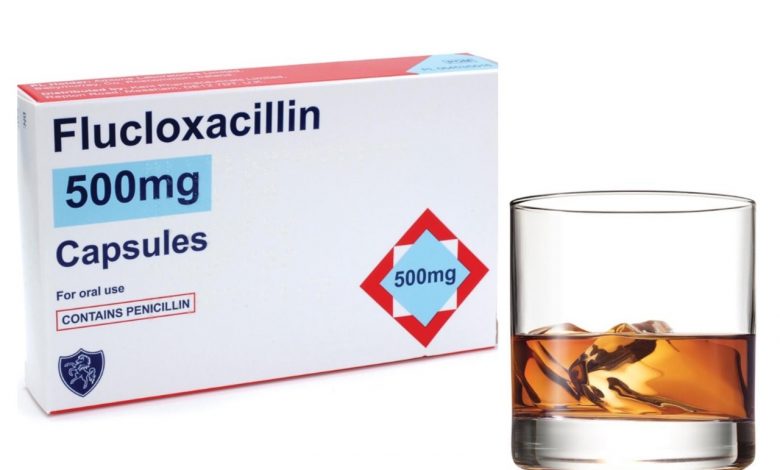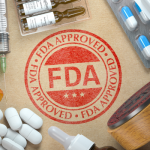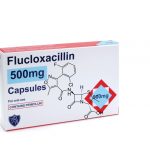Can I Take Flucloxacillin And Alcohol Together?

Throughout the 10,000 or so years that humans have been drinking fermented beverages, they’ve also been arguing about their merits and demerits. The debate still simmers today, with a lively back-and-forth over whether alcohol is good for you or bad for you.
It’s safe to say that alcohol is both a tonic and a poison. The difference lies mostly in the dose. Moderate drinking seems to be good for the heart and circulatory system and probably protects against type 2 diabetes and gallstones. Heavy drinking is a major cause of preventable death in most countries. In the U.S., alcohol is implicated in about half of fatal traffic accidents. Heavy drinking can damage the liver and heart, harm an unborn child, increase the chances of developing breast and some other cancers, contribute to depression and violence, and interfere with relationships.
Because alcohol can adversely interact with hundreds of commonly used medications, it’s important to observe warning labels and ask your doctor or pharmacist if it’s safe to use alcohol with any medications and herbal remedies that you take.
What is flucloxacillin?
Flucloxacillin belongs to a class of medicines called ‘antibiotics‘ used to treat various bacterial infections such as skin infections, soft tissue infections, respiratory tract infections, ear infections, bone infections, bone marrow infections, intestinal tract infections, urinary tract infections, meningitis, and septicemia. A bacterial infection is a condition in which harmful bacteria grow in the body and cause infection. It can infect any part of the body and multiply very quickly.
What is Flucloxacillin available as?
- Capsules: 250 mg, 500 mg
- Liquid medicine (syrup or suspension): 125 mg, 250 mg or 500 mg in 5 mL; some may contain a small amount of sugar.
How it works
Flucloxacillin contains ‘Flucloxacillin’ that works by preventing the cell wall formation of the bacteria which is necessary for their survival. Thereby, Flucloxacillin kills the bacteria and effectively treats various bacterial infections.
Before you take Flucloxacillin WARNING:
Flucloxacillin can cause severe liver damage, particularly in older patients and those who take it for more than 14 days. Do not take Flucloxacillin if you are allergic to:
• medicines containing flucloxacillin or any other penicillin;
• cephalosporin antibiotics;
• beta-lactam antibiotics;
• any of the ingredients listed at the end of this leaflet.
Some of the symptoms of an allergic reaction may include skin rash, itching or hives, swelling of the face, lips, tongue or other parts of the body, shortness of breath, wheezing or troubled breathing.
Do not take Flucloxacillin if you have had a reaction that has affected your liver while you were taking a medicine containing flucloxacillin. Examples of liver reactions include hepatitis and jaundice (yellowing of the eyes or skin).
Do not take Flucloxacillin if the expiry date has passed.
If you are not sure whether you should start using Flucloxacillin, talk to your doctor. Before you start to take it Talk to your doctor or pharmacist before taking this medicine.
If you are taking or will be taking paracetamol There is a risk of blood and fluid abnormality (high anion gap metabolic acidosis) which occurs when there is an increase in plasma acidity, when flucloxacillin is used concomitantly with paracetamol, particularly in certain groups of patients at risk, e.g. patients with severe renal impairment, sepsis or malnutrition, especially if the maximum daily doses of paracetamol are used. High anion gap metabolic acidosis is a serious disease that must have urgent treatment.
Tell your doctor if you are allergic to any other medicines, foods, dyes or preservatives. Tell your doctor if you have any medical conditions, especially the following:
• liver problems;
• kidney problems;
• asthma, hay fever, eczema or other allergic conditions.
How to take flucloxacillin
Flucloxacillin is best taken on an empty stomach, one hour before eating food or at least 2 hours after. This is because your body may absorb less flucloxacillin after a meal, making it less effective.
• Swallow the capsule with a glass of water (200–250 mLs). Do not chew them. The usual dose of flucloxacillin capsules in adults is 500 mg 4 times a day. Some people may need a higher dose.
• Timing: Take flucloxacillin at the same times each day. Try to space your doses evenly throughout the day. For example, for 4 times a day dosing take, first thing in the morning (before breakfast), at around midday (before lunch), late in the afternoon (before tea) and at bedtime.
• Missed dose: If you forget to take your dose, take it as soon as you remember. But, if it is nearly time for your next dose, take the next dose at the right time. Do not take extra doses to make up for a forgotten dose. If you are not sure what to do, ask your healthcare provider.
How long to take it
Keep taking Flucloxacillin until you finish the pack, or for as long as your doctor recommends. Your doctor will advise you on how long to take flucloxacillin (usually 5–7 days).
For most infections, you should feel better within a few days. Do not stop taking Flucloxacillin, even if you feel better after a few days, unless advised by your doctor. Your infection may not clear completely if you stop taking your medicine too soon.
Can I take flucloxacillin and alcohol together?
No, avoid drinking alcohol while taking flucloxacillin. Avoid heavy or binge drinking because it can increase your risk of side effects such as nausea and vomiting. Both flucloxacillin and alcohol can also increase the risk of hepatotoxicity.
Keep in mind that some cold medicines and mouthwashes also contain alcohol. So check the label and avoid such products while taking flucloxacillin.
Even modest alcohol use can reduce your energy and delay how quickly you recover from illness. So, it’s a good idea to avoid alcohol until you finish your flucloxacillin dose and feeling better.
If your doctor tells you that you shouldn’t drink alcohol, ask how long you should wait before drinking again. You may need to wait at least 72 hours after finishing your course of flucloxacillin before having any alcohol.
Listening to your doctor or pharmacist’s advice can help you avoid the effects of an alcohol-drug interaction.
Can a pregnant or breastfeeding woman use flucloxacillin?
Tell your doctor if you are pregnant or plan to become pregnant. Your doctor will discuss the risks and benefits of taking Flucloxacillin during pregnancy. Tell your doctor if you are breastfeeding or wish to breastfeed. A very small quantity of Flucloxacillin passes into breast milk. Your doctor will discuss the risks and benefits of taking Flucloxacillin when breastfeeding. If you have not told your doctor about any of the above, tell them before you start taking Flucloxacillin. This medicine may cause undesirable effects (e.g. allergic reactions, dizziness) which may influence the ability to drive and use machines. You should be cautious when driving or operating machinery.
Flucloxacillin Side Effects
Flucloxacillin can cause severe liver damage, which can make the skin and whites of the eyes turn yellow in colour. This is more likely to occur in older patients and those who take it for more than 14 days. Immediately contact your doctor if you notice any yellowing of your eyes or skin.
Tell your doctor or pharmacist as soon as possible if you do not feel well while you are using Flucloxacillin.
Flucloxacillin treats infections in most people however; it may cause side effects in some people. All medicines can have side effects. Sometimes they are serious, most of the time they are not. You may need medical treatment if you get some of the adverse effects. Ask your doctor or pharmacist to answer any questions you may have.
Very rare side effects (may affect up to 1 in 10,000 people): Very rare cases of blood and fluid abnormality (high anion gap metabolic acidosis) which occurs when there is an increase in plasma acidity, when flucloxacillin is used concomitantly with paracetamol, generally in the presence of risk factors (see Before you take Flucloxacillin) Tell your doctor if you notice any of the following and they worry you:
• feeling sick or vomiting;
• stomach upset, diarrhoea;
• oral thrush (white, furry sore tongue and mouth);
• vaginal thrush (sore and itchy vagina, vaginal discharge).
These are the more common side effects of Flucloxacillin. Mostly these are mild and short-lived.
Tell your doctor immediately or go to Accident and Emergency at the nearest hospital if you notice any of the following:
• watery and severe diarrhoea, which may also be bloody;
• severe stomach cramps;
• tiredness, headaches, being short of breath when exercising, dizziness and looking pale;
• bleeding or bruising more easily than normal;
• frequent infections such as fever, chills, sore throat or mouth ulcers;
• yellowing of the eyes or skin (jaundice);
• painful, swollen joints;
• aching muscles, muscle tenderness or weakness, not caused by exercise;
• dark or cloudy urine, blood in the urine.
These may be serious side effects of Flucloxacillin. You may need urgent medical attention.
These serious side effects are very rare. If any of the following happen, stop taking Flucloxacillin and tell your doctor immediately, or go to Accident and Emergency at the nearest hospital:
• skin rash, itching or hives;
• swelling of the face, lips, tongue or other parts of the body;
• shortness of breath, wheezing or troubled breathing. If you experience any of these side effects, you may have had a serious allergic reaction to Flucloxacillin. You may need urgent medical attention or hospitalisation. These side effects are very rare.
Tell your doctor immediately if you notice any of the following, even if they occur several weeks after stopping treatment with Flucloxacillin:
• watery and severe diarrhoea, which may also be bloody;
• severe stomach cramps;
• yellowing of the eyes or skin (jaundice).
Other adverse effects not listed above may also occur in some patients. Tell your doctor if you notice any other effects. Do not be alarmed by this list of possible adverse effects. You may not experience any of them.





